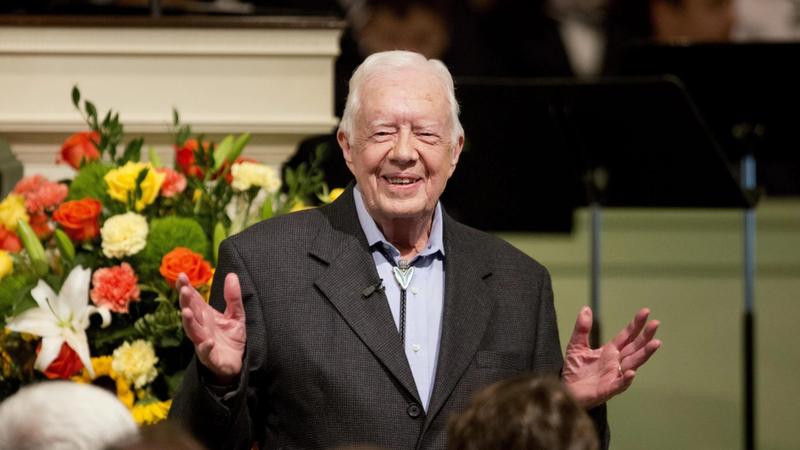Published 12:32 IST, December 30th 2024
Jimmy Carter’s Policy Legacy Is As Germane As Ever
Carter called on a country demoralized by relentlessly rising prices to unite around the cause of energy security and reduce dependence on foreign supplies.

Vote of confidence. As Jimmy Carter is laid to rest, the policy issues that dominated his time in the White House have come roaring back to life. The 39th U.S. president, who died on Sunday at 100, gets deserved credit for some four decades of good works after leaving the Oval Office and undeserved blame for the economic conditions that cost him a second term leading the country. Whether it’s the inflation and energy crisis that plagued his administration or the higher wages, ties with China, Middle East peace and renewable power that he championed, his legacy is as relevant as ever.
Carter lived long enough that new generations know less about his presidency than his devotion to building affordable houses, monitoring elections around the world and fighting Guinea worm. To older Americans and students of politics, the former Georgia peanut farmer and U.S. Navy officer, who once descended into a damaged Canadian nuclear reactor to help prevent a full meltdown, is often associated with a lengthy hostage crisis in Iran and the 1979 speech in which he described a “crisis of confidence” across the United States.
Largely forgotten from that address to the nation was Carter’s rallying cry. He called on a country frustrated and demoralized by relentlessly rising prices, fuel shortages and the accompanying growth in unemployment, to unite around the cause of energy security and curbing dependence on foreign supplies. Carter advocated for import quotas, a windfall profit tax on oil producers, investment in public transportation and for average Americans to lower their thermostats.
The solar panels Carter installed on the White House roof symbolized his mission for the country to generate 20% of its energy from renewable sources by 2000. They were later removed by Ronald Reagan, who defeated him at the ballot in 1980. His Republican successor also got much of the political credit for U.S. Federal Reserve Chair Paul Volcker’s painful campaign to curb inflation, which had doubled to more than 13% during Carter’s term in office. It was the former Georgia governor who appointed the central banker, however.
Meanwhile, Carter’s establishment of full diplomatic relations with China defused military tensions in Asia and paved the way for the United States to import cheaper goods. His Camp David Accords, convening the leaders of Egypt and Israel to establish a framework for peace in the fraught region, represented one of the strongest and most dedicated efforts by a U.S. president to make progress on the dispute. He also successfully pushed for a 45% hike in the minimum wage.
Nearly all these issues are now back at the forefront of the American economic debate. Carter learned the hard way that voters prioritize jobs and grocery bills over longer-term issues. Yet unless lawmakers prove more willing to embrace the late president’s far-sighted and methodical approach, there is every reason to expect another crisis of confidence.
Context News
James Earl Carter, the 39th president of the United States, died on Dec. 29 at the age of 100. He had decided to forgo any further medical treatment on Feb. 18, 2023, and opted for hospice care. Carter, a Democrat, was president from Jan. 20, 1977, until Jan. 20, 1981. He previously served as the governor of Georgia and as a senator from the state. In 1982, Carter started the Carter Center, a nonprofit organization dedicated to advancing human rights and preventing disease, among other goals. He was awarded the Nobel Peace Prize in 2002.
Updated 12:32 IST, December 30th 2024
